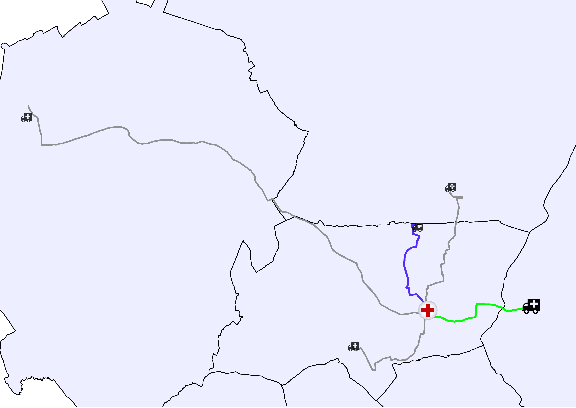George Roussos
DESERE: The 1st Workshop on Decentralised Search and Recommendation
Mar 12, 2024
Abstract:The DESERE Workshop, our First Workshop on Decentralised Search and Recommendation, offers a platform for researchers to explore and share innovative ideas on decentralised web services, mainly focusing on three major topics: (i) societal impact of decentralised systems: their effect on privacy, policy, and regulation; (ii) decentralising applications: algorithmic and performance challenges that arise from decentralisation; and (iii) infrastructure to support decentralised systems and services: peer-to-peer networks, routing, and performance evaluation tools
The Application of Market-based Multi-Robot Task Allocation to Ambulance Dispatch
Mar 11, 2020



Abstract:Multi-Robot Task Allocation (MRTA) is the problem of distributing a set of tasks to a team of robots with the objective of optimising some criteria, such as minimising the amount of time or energy spent to complete all the tasks or maximising the efficiency of the team's joint activity. The exploration of MRTA methods is typically restricted to laboratory and field experimentation. There are few existing real-world models in which teams of autonomous mobile robots are deployed "in the wild", e.g., in industrial settings. In the work presented here, a market-based MRTA approach is applied to the problem of ambulance dispatch, where ambulances are allocated in respond to patients' calls for help. Ambulances and robots are limited (and perhaps scarce), specialised mobile resources; incidents and tasks represent time-sensitive, specific, potentially unlimited, precisely-located demands for the services which the resources provide. Historical data from the London Ambulance Service describing a set of more than 1 million (anonymised) incidents are used as the basis for evaluating the predicted performance of the market-based approach versus the current, largely manual, method of allocating ambulances to incidents. Experimental results show statistically significant improvement in response times when using the market-based approach.
 Add to Chrome
Add to Chrome Add to Firefox
Add to Firefox Add to Edge
Add to Edge